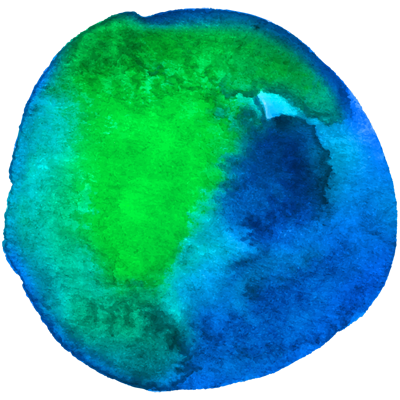L-Theanine
L-Theanine is a unique, non-proteinogenic amino acid primarily found in tea leaves (Camellia sinensis). Unlike proteinogenic amino acids, L-Theanine is not incorporated into proteins but exhibits a range of biological activities. It has been shown to increase levels of gamma-aminobutyric acid (GABA) in the brain. GABA is an inhibitory neurotransmitter that modulates neuronal excitability, contributing to calming effects.
Literature Review
The impact of orally administered L-theanine on cognitive abilities appears to be somewhat mixed. Whether combining it with caffeine amplifies the cognitive benefits of either component is still uncertain. A one-time dose of 100 mg of L-theanine seems to enhance attentional vigilance and reduces the frequency of errors in cognitive assessments, when set against a placebo.[i]
On the other hand, a daily dose of 200 mg of L-theanine over a four-week period does not seem to significantly enhance various cognitive metrics like memory, verbal fluency, motor speed, or executive functioning in adults. However, there may be a moderate improvement in verbal fluency among individuals who had lower cognitive performance at the beginning of the study.[ii]
Meta-analyses and individual clinical trials indicate that the pairing of L-theanine and caffeine boosts alertness and accuracy in tests that demand shifting attention between tasks, although it doesn't appear to speed up reaction times.[iii],[iv],[v],[vi]
Some studies indicate that this combination enhances cognitive performance and diminishes the fatigue experienced during tasks, compared to baseline and placebo. The question of whether these benefits arise from the individual ingredients or their combination remains open for investigation.
Single-dose analysis from the study suggests that 101 mg of L-theanine could potentially improve working memory quality and reaction times during cognitive evaluations, relative to a placebo.[vii]
Mechanism of Action
General: Theanine is predominantly found in tea, making up 1% to 3% of its composition.[viii],[ix],[x] Typically, a 200 mL serving can contain between 4.5 mg and 60 mg of theanine, with L-theanine being its primary form, L-theanine (98%). 103,105,[xi] Some mushrooms also contain theanine.104,105,[xii],[xiii]
Antioxidant effects: Upon absorption, L-theanine is broken down into glutamic acid and ethylamine. These, in turn, contribute to the formation of the antioxidant glutathione (GSH).[xiv]
Anxiolytic effects: L-theanine may alleviate stress responses due to its impact on glutamate receptors and potentially increasing inhibitory neurotransmitters like GABA.107,108
Attention effects: L-theanine alone or combined with caffeine has been studied for its effects on alpha-wave activity as a proxy for attention. While L-theanine seems to increase alpha activity during rest, its lower doses don't significantly impact background alpha activity. Consuming either L-theanine or caffeine alone was no different than placebo. However, when L-theanine 100 mg was combined with caffeine 50 mg, tonic alpha significantly decreased.[xv]
Cognitive effects: L-theanine appears to improve cognitive function, possibly by affecting synaptic plasticity, which is regulated by glutamate signaling. It might also modulate alpha and theta wave activities, markers of relaxation and cognitive alertness, respectively.111
Theanine has been shown to influence both alpha and theta brain wave activities. An increase in alpha wave activity is generally associated with relaxation, while heightened theta wave activity is linked to enhanced cognitive alertness. Clinical studies found that a product containing L-theanine and green tea extract boosted theta wave activity when subjects had their eyes open or were reading, but reduced it when their eyes were closed. [xvi]
L-theanine also appears to protect against the toxic effects of caffeine and may inhibit the excitatory effects of caffeine at higher doses allowing for improved performance on certain cognitive tests.112
Neurologic effects: L-theanine is considered for its anti-anxiety and relaxing attributes, possibly due to its influence on neurotransmitters like GABA and serotonin. It might also offer neuroprotection by inhibiting glutamate reuptake and acting as an antagonist at specific receptors.[xvii],[xviii],[xix]
Weight loss effects: Animal studies propose that L-theanine may work in tandem with caffeine and other green tea constituents to promote weight loss by affecting liver glycogen synthesis and reducing gluconeogenesis.[xx],[xxi]
References
[i]Foxe JJ, et al. Assessing the effects of caffeine and theanine on the maintenance of vigilance during a sustained attention task. Neuropharmacology. 2012;62(7):2320-2327.
[ii]Hidese S, Ogawa S, Ota M, et al. Effects of L-theanine administration on stress-related symptoms and cognitive functions in healthy adults: A randomized controlled trial. Nutrients. 2019;11(10). pii: E2362.
[iii]Giesbrecht, T., Rycroft, J. A., Rowson, M. J., and De Bruin, E. A. The combination of L-theanine and caffeine improves cognitive performance and increases subjective alertness. Nutr Neurosci. 2010;13(6):283-290.
[iv]Camfield DA, Stough C, Farrimond J, Scholey AB. Actue effects of tea constituents L-theanine, caffeine, and epigallocatechin gallate on cognitive function and mood: a systematic review and meta-analysis. Nutr Rev. 2014;72(8):507-522.
[v]Owen GN, Parnell H, De Bruin EA, Rycroft JA. The combined effects of L-theanine and caffeine on cognitive performance and mood. Nutr Neurosci 2008;11(4):193-8.
[vi]Einöther SJ, Martens VE, Rycroft JA, De Bruin EA. L-theanine and caffeine improve task switching but not intersensory attention or subjective alertness. Appetite 2010;54(2):406-9.
[vii]Baba Y, Inagaki S, Nakagawa S, Kaneko T, Kobayashi M, Takihara T. Effects of l-Theanine on Cognitive Function in Middle-Aged and Older Subjects: A Randomized Placebo-Controlled Study. J Med Food 2021;24(4):333-341.
[viii]Kakuda T, Yanase H, Utsunomiya K, et al. Protective effect of gamma-glutamylethylamide (theanine) on ischemic delayed neuronal death in gerbils. Neurosci Lett 2000;289:189-92.
[ix]Sadzuka Y, Sugiyama T, Sonobe T. Efficacies of tea components on doxorubicin induced antitumor activity and reversal of multidrug resistance. Toxicol Lett 2000;114:155-62.
[x]Ritsner MS, Miodownik C, Ratner Y, et al. L-theanine relieves positive, activation, and anxiety symptoms in patients with schizophrenia and schizoaffective disorder: an 8-week, randomized, double-blind, placebo-controlled, 2-center study. J Clin Psychiatry 2011;72(1):34-42.
[xi]Kahathuduwa CN, Dassanayake TL, Amarakoon AMT, Weerasinghe VS. effects of theanine, caffeine and theanine-caffeine combination on attention. Nutr Neurosci 2017;20(6):369-77.
[xii]Lu K, Gray MA, Oliver C, et al. The acute effects of L-theanine in comparison with alprazolam on anticipatory anxiety in humans. Hum Psychopharmacol 2004;19:457-65.
[xiii]Miodownik C, Maayan R, Ratner Y, et al. Serum levels of brain-derived neurotrophic factor and cortisol to sulfate of dehydroepiandrosterone molar ratio associated with clinical response to L-theanine as augmentation of antipsychotic therapy in schizophrenia and schizoaffective disorder patients. Clin Neuropharmacol 2011;34(4):155-60.
[xiv]Tsuchiya T, Honda H, Oikawa M, et al. Oral administration of the amino acids cystine and theanine attenuates the adverse events of S-1 adjuvant chemotherapy in gastrointestinal cancer patients. Int J Clin Oncol 2016;21(6):1085-90.
[xv]Kelly SP, Gomez-Ramirez M, Montesi JL, Foxe JJ. L-theanine and caffeine in combination affect human cognition as evidenced by oscillatory alpha-band activity and attention task performance. J Nutr 2008;138(8):1572S-1577S.
[xvi]Park SK, Jung IC, Lee WK, et al. A combination of green tea extract and l-theanine improves memory and attention in subjects with mild cognitive impairment: a double-blind placebo-controlled study. J Med Food 2011;14(4):334-43.
[xvii]Haskell, C. F., Kennedy, D. O., Milne, A. L., Wesnes, K. A., and Scholey, A. B. The effects of L-theanine, caffeine and their combination on cognition and mood. Biol.Psychol. 2008;77(2):113-122.
[xviii]Camfield DA, Stough C, Farrimond J, Scholey AB. Actue effects of tea constituents L-theanine, caffeine, and epigallocatechin gallate on cognitive function and mood: a systematic review and meta-analysis. Nutr Rev. 2014;72(8):507-522.
[xix]Unno K, et al. Anti-stress effect of theanine on students during pharmacy practice: positive correlation among salivary a-amylase activity, trait anxiety and subjective stress. Pharmacol Biochem Behav. 2013;111:128-135.
[xx]Zheng G, Sayama K, Okubo T, et al. Anti-obesity effects of three major components of green tea, catechins, caffeine and theanine, in mice. In Vivo 2004;18:55-62.
[xxi]Lin L, Zeng L, Liu A, et al. L-theanine regulates glucose, lipid, and protein metabolism via insulin and AMP-activated protein kinase signaling pathways. Food Funct. 2020;11(2):1798-1809.

Dr. Kevin Bunting Jr., PharmD.
After 4 years of exhaustive research and over ten formula iterations, NESIS® was born, supported by 187 peer-reviewed studies. I've ensured each ingredient is at or above the clinically effective dose, not just trace amounts for show.

